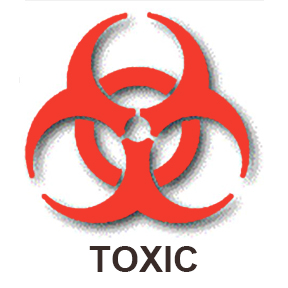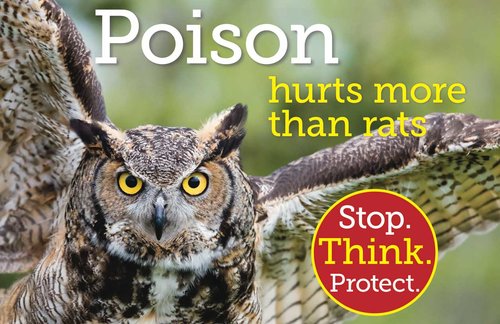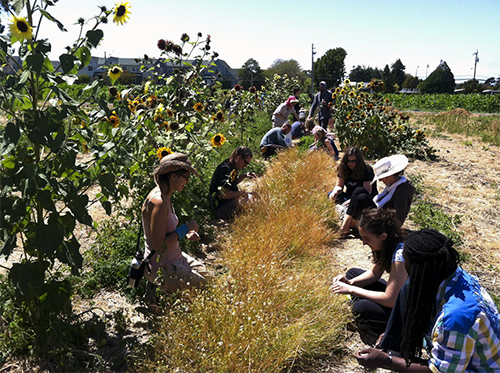While Marin County has now essentially banned the use of glyphosate and other toxic pesticides except in very special circumstances, not all of the cities and towns in Marin have followed suit.
Action:
We are asking residents, business owners, school kids, and shoppers in Novato, San Rafael, Mill Valley, and Tiburon to send in an email or letter to the City Council, calling on them to discontinue the use of toxic pesticides on land they own or manage and to adopt Marin County's IPM (Integrated Pest Management) protocols. The more these protocols are standardized, the better our chances to live toxic-free in all of Marin! A sample letter and contact information is below. Be sure to cc us at scmaringroup@gmail.com when you send your email!
CONTACTS:
Novato: novatocouncil@novato.org Mayor Pat Ecklund, 922 Machin Avenue, Novato, CA 94945
San Rafael: https://www.cityofsanrafael.org/contact-city-council/ Mayor Kate Colin, 1400 Fifth Ave, San Rafael, CA 94901
Tiburon: town@townoftiburon.org Mayor Holli Thier, 1505 Tiburon Boulevard, Tiburon, CA 94920
Mill Valley: cityclerk@cityofmillvalley.org Mayor John McCauley, 26 Corte Madera Avenue, Mill Valley, CA 94941
SAMPLE LETTER
Dear Mayor and City Council:
I am a resident/concerned citizen of [town] and am asking for the City Council to stop the use of all toxic pesticides on all city properties you own or manage. We know that these chemicals are not good for us, our children, or the natural environment and wildlife. We are losing species at an alarming rate, including bees that we depend upon for our food, and butterflies that give us joy. These toxic products are a hazard to your employees as well.
Please adopt Marin County’s IPM protocols and stop using dangerous chemicals. The County is very willing to help your DPW employees and the City Council take this important step towards improving public and environmental health.
Sincerely,
[Insert name and address]
Cc: scmaringroup@gmail.com
Ban on Glyphosate
 While Marin County has now essentially banned the use of Glyphosate except in very special circumstances, not all of the cities and towns in Marin have followed suit. These products are also overused by residents. With new state requirements on stormwater flows, reducing and eliminating these products will lead to long term health in the environment, and reduce the risk of fines from contamination. Our Water Our World, a program of University of California’s statewide Integrated Pest Management Program promoted Marin’s MCSTOPPP, puts out shelf hangers to help residents choose less toxic products.
While Marin County has now essentially banned the use of Glyphosate except in very special circumstances, not all of the cities and towns in Marin have followed suit. These products are also overused by residents. With new state requirements on stormwater flows, reducing and eliminating these products will lead to long term health in the environment, and reduce the risk of fines from contamination. Our Water Our World, a program of University of California’s statewide Integrated Pest Management Program promoted Marin’s MCSTOPPP, puts out shelf hangers to help residents choose less toxic products.
YardSmartMarin
The newly for med YardSmartMarin campaign also informs residents on less toxic garden products. The program has been focused on eliminating rodenticides since early June. These products are found in nearly all raptors and cause death in not just rats but every predator who comes across their poisoned bodies. Owls, hawks, and even dogs and cats can be poisoned indirectly. Traps and removal of attractants, like cat, dog and bird food, are more effective and safer. Sierra Club fully supports YardSmartMarin and these efforts. Several of us have actively participated in this campaign, bringing information to parades, EcoFest, farmers markets, and other public events such as Conservation Night at Marin Art & Garden Center. The owl graphic has appeared on bus shelters, in ads, newspapers, and tons of social media for the past 2 1/2 months. Please like their Facebook page to keep up with this campaign facebook.com/YardSmartMarin/.
med YardSmartMarin campaign also informs residents on less toxic garden products. The program has been focused on eliminating rodenticides since early June. These products are found in nearly all raptors and cause death in not just rats but every predator who comes across their poisoned bodies. Owls, hawks, and even dogs and cats can be poisoned indirectly. Traps and removal of attractants, like cat, dog and bird food, are more effective and safer. Sierra Club fully supports YardSmartMarin and these efforts. Several of us have actively participated in this campaign, bringing information to parades, EcoFest, farmers markets, and other public events such as Conservation Night at Marin Art & Garden Center. The owl graphic has appeared on bus shelters, in ads, newspapers, and tons of social media for the past 2 1/2 months. Please like their Facebook page to keep up with this campaign facebook.com/YardSmartMarin/.
Soil Not Oil Coalition Forum
 The Soil Not Oil coalition recently sponsored a forum about reducing/eliminating pesticides in our communities. Barbara Bogard, member of the Sierra Club Executive Board, and her activist team has nudged Marin County very close to eliminating pesticides in Marin County. In this video, Barbara explains how they accomplished this impressive achievement.
The Soil Not Oil coalition recently sponsored a forum about reducing/eliminating pesticides in our communities. Barbara Bogard, member of the Sierra Club Executive Board, and her activist team has nudged Marin County very close to eliminating pesticides in Marin County. In this video, Barbara explains how they accomplished this impressive achievement.
Her presentation is an activists’ primer of how to change public policy and practices. The methods they used are applicable to every public policy issue. But her final message is perhaps the most important: above all, PERSISTENCE is required by the public to stop the use of pesticides in our communities.
The second speaker, Dr. Ann Lopez, spoke about the health hazards of pesticide use to agricultural workers and their communities and the progress being made to reduce pesticide use for agricultural purposes.
We recommend this VIDEO to you. It is informative and inspiring.